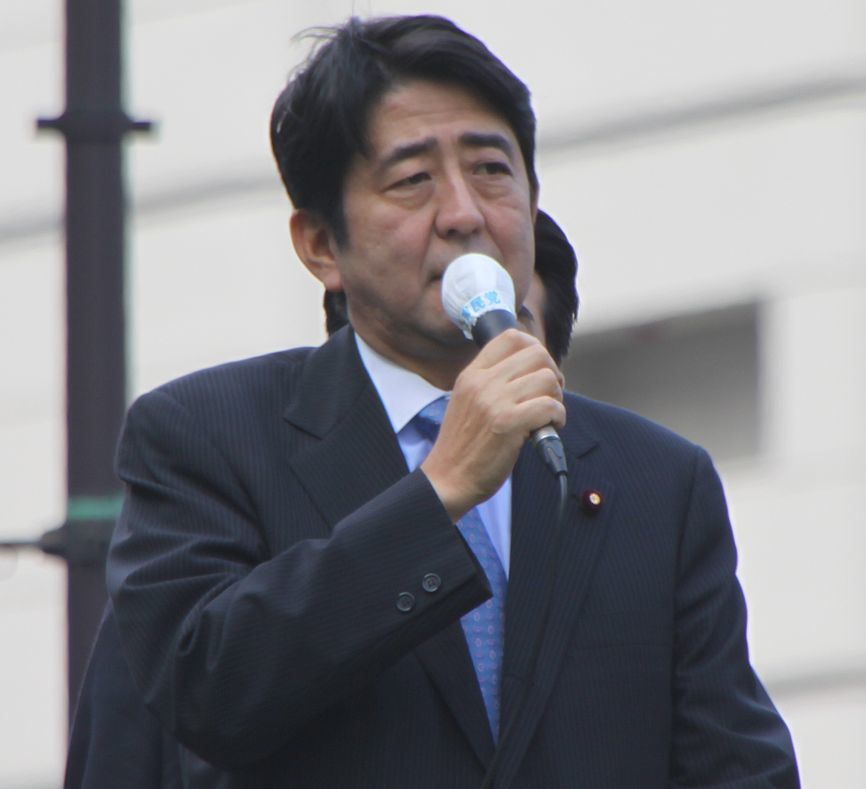Realpolitik: Japan trades nuclear tech to Middle East in exchange for oil


Japan has been paying enormously for importing fossil fuels to replace shuttered nuclear power plants. And its future supply of oil remains in doubt, posing possible grave economic consequences for the country.
So in a stroke of realpolitik - realgeopolitik, really - Prime Minister Shinzo Abe has returned from a tour of the Middle East where he has, you could say, bartered one form of energy for another in order to help secure a stable future for his natural resource-thin island nation.
Abe secured a deal with the United Arab Emirates earlier this month in which Japan will provide technology to help the UAE build four nuclear power plants, already under South Korean supervision. At the same time, the UAE and Prime Minister Sheikh Mohammed bin Rashif al-Maktoum "also agreed to extend an oil concession agreement with Japan's Abu Dhabi Oil Co., adding a new zone," the Japan Times reported, citing UAE's WAM news agency.
The Japanese leader hopes to negotiate a similar agreement with Saudi Arabia, where he began his visit and where China already has a nuclear foothold. Abe "is emphaszing cooperation with Japan's Middle East partners to ensure Japan will continue to receive stable deliveries of oil from the region," the Japan Times wrote.
Japan's economy has suffered following the country's decision to close almost all of its nuclear reactors after the Fukushima disaster. Nuclear had provided about 30 percent of the country's electricity. The cost of importing fossil fuels like liquefied natural gas has already hit the country hard, and the price is effectively rising amid a current weakening of Japan's currency, the yen. The expenditures recently pushed Japan's trade deficit to an all time high.
Some Japanese economists have warned that Japan could ultimately lose its supply of oil as the U.S. becomes more energy independent and potentially grows less interested in maintaining Middle East stability.
Under a push by Abe, Japan is also expected to begin restarting some of its close nuclear reactors, although the likelihood of returning to a 30 percent nuclear scenario is uncertain. By exporting nuclear technology, Japan is looking after growth in a key area of its technological expertise. Japan this month also won an agreement to help Turkey build a new nuclear power station.
Photo from Wikimedia
More power from Japan, and nuclear emergence, on SmartPlanet:
- World' biggest battery will store solar electricity in Japan
- Turning Japan's nuclear past into its future
- Newcomers like Bangladesh will help drive 30 percent nuclear growth
- Japan's driverless trucks to cut fuel consumption
- Just a partial nuclear restart would save Japan $20 billion
- Shares surge as Japan's new leader looks to revive nuclear
- The shortest route: Russia ships gas to Japan via Arctic
- The economic case for nuclear power in Japan
- Fukushima utility: We could have prevented nuclear meltdowns
- Nuclear or not to nuclear: Japan struggles with the question
- Japan dials up wind energy
- How to avoid a nuclear meltdown: question authority
- Utility-scale solar plant for Fukushima
- From Fukushima’s home country: Nuclear will double
- Nuclear down, CO2 up in Japan, Germany
- Fukushima’s lesson: ‘Alternative’ nuclear, not ‘no’ nuclear
- Saudi Arabia taps China for nuclear
This post was originally published on Smartplanet.com